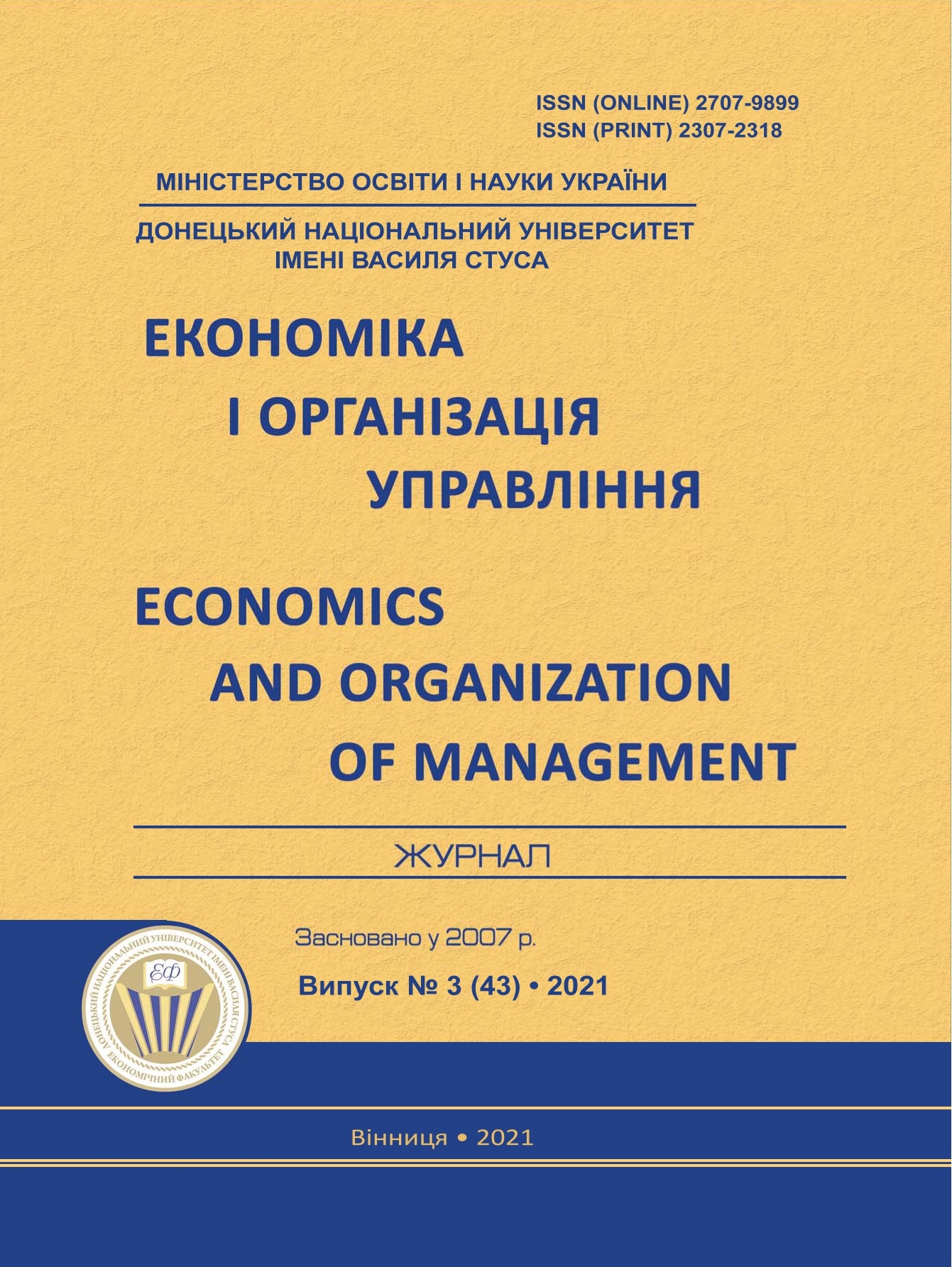The accounting profession in the digital economy
DOI:
https://doi.org/10.31558/2307-2318.2021.3.13Keywords:
accountant; digitalization; digital economy; educational program; competenceAbstract
The article considers the problem of preservation and internal content of the accounting profession in the conditions of digitalization of business processes. The aim of the article is to study the set of professional competencies of an accountant in terms of their compliance with the challenges of the labor market in the digital economy. The article identifies and discusses in detail the activities of a modern accountant, as accounting, regulatory and methodological, organizational and managerial, control, analytical and consulting. Emphasis is placed on the role of the chief accountant in building the information system of the domestic business entity and optimizing the management decision-making process. Based on the analysis of soft skills of a specialist in 2025, formulated by the World Economic Forum, the direction of transformation of qualification requirements for the accountant is determined. Recommendations for the formation of a set of disciplines in the training of higher education institutions in the specialty 071 “Accounting and Taxation” are determined. Conclusions are made, directions of further researches are formed.
References
Спільник І., Палюх М. Бухгалтерський облік в умовах цифрової економіки. Інститут бухгалтерського обліку, контроль та аналіз в умовах глобалізації. 2019. Випуск 1-2. С. 83-96.
Панасюк В., Бурденюк Т., Мужевич Н. Особливості цифрової трансформації обліку. Галицький економічний вісник. 2021. № 1 (68). С. 70-76.
Жук В.М., Попко Є.Ю., Шендерівська Ю.Л. Бухгалтерський облік: перегляд предмету і назви професії. Облік і фінанси. 2020. № 1 (87). С. 36-44.
Король С. Я., Польовик Є. В., Діджиталізація економіки як фактор професійного розвитку. Modern Economics. 2019. №18. С. 67-73.
Микульський В.С. Трансформація професії бухгалтера в умовах диджиталізації управління. Економіка АПК. 2019. № 6. С. 103-107.
Царук Н. Г. Чинники розвитку та складники цифрової грамотності бухгалтера. Науковий вісник Ужгородського національного університету. 2021. Вип. 35. С. 69-73.
Плікус І., Жукова Т., Осадча О. Модель професії бухгалтер в епоху цифрових трансформацій: ключові напрями компетентностей бухгалтера. Приазовський економічний вісник. 2019. ип.1 (12). С. 200-205.
Плікус І.Й., Осадча О.О., Жукова Т.А. Розвиток професії «бухгалтер» в умовах цифрової адженди: емпіричні дослідження щодо майбутнього професії. Інфраструктура ринку. 2019. Вип. 29. С. 589-594.
Найпопулярніші професії ринку праці України. URL: https://mik.dcz.gov.ua/publikaciya/naypopulyarnishi-profesiyi-rynku-praci-ukrayiny.
Про бухгалтерський облік та фінансову звітність в Україні : Закон України від 16.07.1999 р. № 996. URL: http://zakon5.rada.gov.ua/laws/show/996-14.
Стандарт вищої освіти України: перший (бакалаврський) рівень, галузь знань 07 – Управління та адміністрування, спеціальність 071 – Облік і оподаткування: наказ Міністерства освіти і науки України від 19.11.2018 р. № 1260. URL: https://mon.gov.ua/storage/app/media/vyshcha/standarty/071.pdf .
The Future of Jobs Report 2020. The World Economic Forum. URL: http://www3.weforum.org/docs/WEF_Future_of_Jobs_2020.pdf.
Сайт пошуку роботи №1 в Україні. URL: https://www.work.ua/.

